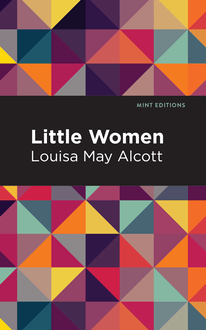-
 Univers
Univers
-
 Ebooks
Ebooks
-
 Livres audio
Livres audio
-
 Presse
Presse
-
 Podcasts
Podcasts
-
 BD
BD
-
 Documents
Documents
-
- Cours
- Révisions
- Ressources pédagogiques
- Sciences de l’éducation
- Manuels scolaires
- Langues
- Travaux de classe
- Annales de BEP
- Etudes supérieures
- Maternelle et primaire
- Fiches de lecture
- Orientation scolaire
- Méthodologie
- Corrigés de devoir
- Annales d’examens et concours
- Annales du bac
- Annales du brevet
- Rapports de stage
La lecture à portée de main
Vous pourrez modifier la taille du texte de cet ouvrage
Découvre YouScribe en t'inscrivant gratuitement
Je m'inscrisDécouvre YouScribe en t'inscrivant gratuitement
Je m'inscrisEn savoir plus
Vous pourrez modifier la taille du texte de cet ouvrage
En savoir plus

Description
Originally born in an impoverished community, Charity’s parents sought out the most educated man in the nearby New England town to raise their daughter. After being surrendered to a lawyer named Royall, Charity was raised comfortably by Mr. Royall and his wife. However, when Mrs. Royall tragically passes away, Charity’s relationship with Royall is threatened. After his wife’s death, Royall begins to feel sexually attracted to Charity, and when she refuses him, their relationship becomes tense. Royall refuses to be close to her, sending proxies to take care of her. Upset and desperate to earn enough money to be able to move away and start a new life, Charity begins to work at the local library. There, she meets a young architect named Lucius, who is visiting the town to gather research for a book he is writing on colonial homes. When Charity offers to escort him around town, the two become very close, much to Royall’s dismay. Intending to marry Charity himself, Royall does his best to keep the two apart, making sure that it is known that Lucius is not welcome in his home. Still, Charity and Lucius begin a passionate love affair, progressing to a physical relationship. With secret rendezvous and passionate promises, Charity falls head over heels, but when Lucius starts missing meetings and spending time with other women, Charity is forced to wonder if he is really the man she thought she knew. When she discovers information that turns her world upside down, Charity is inspired to revisit her roots to help her make a difficult choice. With themes of class, feminism, relationships, and sexual awakening, Summer by Edith Wharton was viewed as a controversial novel when it was first published. Now, over one-hundred years later, modern audiences can appreciate the complex class and gender struggles depicted in Summer without being scandalized by the erotic content. With the use of beautiful prose filled with rich imagery, Edith Wharton’s Summer features a heart-wrenching narrative sure to keep readers engaged. Now printed in a modern, reader-friendly font, and featuring a stunning new cover design, this edition of Summer by Edith Wharton creates an accessible reading experience for contemporary audiences.
Sujets
Informations
| Publié par | Mint Editions |
| Date de parution | 07 mai 2021 |
| Nombre de lectures | 0 |
| EAN13 | 9781513275604 |
| Langue | English |
| Poids de l'ouvrage | 3 Mo |
Informations légales : prix de location à la page 0,0400€. Cette information est donnée uniquement à titre indicatif conformément à la législation en vigueur.
Extrait
Summer
Edith Wharton
Summer was first published in 1917.
This edition published by Mint Editions 2021.
ISBN 9781513270609 | E-ISBN 9781513275604
Published by Mint Editions®
minteditionbooks.com
Publishing Director: Jennifer Newens
Design & Production: Rachel Lopez Metzger
Typesetting: Westchester Publishing Services
C ONTENTS I II III IV V VI VII VIII IX X XI XII XIII XIV XV XVI XVII XVIII
I
A girl came out of lawyer Royall’s house, at the end of the one street of North Dormer, and stood on the doorstep.
It was the beginning of a June afternoon. The springlike transparent sky shed a rain of silver sunshine on the roofs of the village, and on the pastures and larchwoods surrounding it. A little wind moved among the round white clouds on the shoulders of the hills, driving their shadows across the fields and down the grassy road that takes the name of street when it passes through North Dormer. The place lies high and in the open, and lacks the lavish shade of the more protected New England villages. The clump of weeping-willows about the duck pond, and the Norway spruces in front of the Hatchard gate, cast almost the only roadside shadow between lawyer Royall’s house and the point where, at the other end of the village, the road rises above the church and skirts the black hemlock wall enclosing the cemetery.
The little June wind, frisking down the street, shook the doleful fringes of the Hatchard spruces, caught the straw hat of a young man just passing under them, and spun it clean across the road into the duck-pond.
As he ran to fish it out the girl on lawyer Royall’s doorstep noticed that he was a stranger, that he wore city clothes, and that he was laughing with all his teeth, as the young and careless laugh at such mishaps.
Her heart contracted a little, and the shrinking that sometimes came over her when she saw people with holiday faces made her draw back into the house and pretend to look for the key that she knew she had already put into her pocket. A narrow greenish mirror with a gilt eagle over it hung on the passage wall, and she looked critically at her reflection, wished for the thousandth time that she had blue eyes like Annabel Balch, the girl who sometimes came from Springfield to spend a week with old Miss Hatchard, straightened the sunburnt hat over her small swarthy face, and turned out again into the sunshine.
“How I hate everything!” she murmured.
The young man had passed through the Hatchard gate, and she had the street to herself. North Dormer is at all times an empty place, and at three o’clock on a June afternoon its few able-bodied men are off in the fields or woods, and the women indoors, engaged in languid household drudgery.
The girl walked along, swinging her key on a finger, and looking about her with the heightened attention produced by the presence of a stranger in a familiar place. What, she wondered, did North Dormer look like to people from other parts of the world? She herself had lived there since the age of five, and had long supposed it to be a place of some importance. But about a year before, Mr. Miles, the new Episcopal clergyman at Hepburn, who drove over every other Sunday—when the roads were not ploughed up by hauling—to hold a service in the North Dormer church, had proposed, in a fit of missionary zeal, to take the young people down to Nettleton to hear an illustrated lecture on the Holy Land; and the dozen girls and boys who represented the future of North Dormer had been piled into a farm-waggon, driven over the hills to Hepburn, put into a way-train and carried to Nettleton.
In the course of that incredible day Charity Royall had, for the first and only time, experienced railway-travel, looked into shops with plate-glass fronts, tasted cocoanut pie, sat in a theatre, and listened to a gentleman saying unintelligible things before pictures that she would have enjoyed looking at if his explanations had not prevented her from understanding them. This initiation had shown her that North Dormer was a small place, and developed in her a thirst for information that her position as custodian of the village library had previously failed to excite. For a month or two she dipped feverishly and disconnectedly into the dusty volumes of the Hatchard Memorial Library; then the impression of Nettleton began to fade, and she found it easier to take North Dormer as the norm of the universe than to go on reading.
The sight of the stranger once more revived memories of Nettleton, and North Dormer shrank to its real size. As she looked up and down it, from lawyer Royall’s faded red house at one end to the white church at the other, she pitilessly took its measure. There it lay, a weather-beaten sunburnt village of the hills, abandoned of men, left apart by railway, trolley, telegraph, and all the forces that link life to life in modern communities. It had no shops, no theatres, no lectures, no “business block”; only a church that was opened every other Sunday if the state of the roads permitted, and a library for which no new books had been bought for twenty years, and where the old ones mouldered undisturbed on the damp shelves. Yet Charity Royall had always been told that she ought to consider it a privilege that her lot had been cast in North Dormer. She knew that, compared to the place she had come from, North Dormer represented all the blessings of the most refined civilization. Everyone in the village had told her so ever since she had been brought there as a child. Even old Miss Hatchard had said to her, on a terrible occasion in her life: “My child, you must never cease to remember that it was Mr. Royall who brought you down from the Mountain.”
She had been “brought down from the Mountain”; from the scarred cliff that lifted its sullen wall above the lesser slopes of Eagle Range, making a perpetual background of gloom to the lonely valley. The Mountain was a good fifteen miles away, but it rose so abruptly from the lower hills that it seemed almost to cast its shadow over North Dormer. And it was like a great magnet drawing the clouds and scattering them in storm across the valley. If ever, in the purest summer sky, there trailed a thread of vapour over North Dormer, it drifted to the Mountain as a ship drifts to a whirlpool, and was caught among the rocks, torn up and multiplied, to sweep back over the village in rain and darkness.
Charity was not very clear about the Mountain; but she knew it was a bad place, and a shame to have come from, and that, whatever befell her in North Dormer, she ought, as Miss Hatchard had once reminded her, to remember that she had been brought down from there, and hold her tongue and be thankful. She looked up at the Mountain, thinking of these things, and tried as usual to be thankful. But the sight of the young man turning in at Miss Hatchard’s gate had brought back the vision of the glittering streets of Nettleton, and she felt ashamed of her old sun-hat, and sick of North Dormer, and jealously aware of Annabel Balch of Springfield, opening her blue eyes somewhere far off on glories greater than the glories of Nettleton.
“How I hate everything!” she said again.
Half way down the street she stopped at a weak-hinged gate. Passing through it, she walked down a brick path to a queer little brick temple with white wooden columns supporting a pediment on which was inscribed in tarnished gold letters: “The Honorius Hatchard Memorial Library, 1832.”
Honorius Hatchard had been old Miss Hatchard’s great-uncle; though she would undoubtedly have reversed the phrase, and put forward, as her only claim to distinction, the fact that she was his great-niece. For Honorius Hatchard, in the early years of the nineteenth century, had enjoyed a modest celebrity. As the marble tablet in the interior of the library informed its infrequent visitors, he had possessed marked literary gifts, written a series of papers called “The Recluse of Eagle Range,” enjoyed the acquaintance of Washington Irving and Fitz-Greene Halleck, and been cut off in his flower by a fever contracted in Italy. Such had been the sole link between North Dormer and literature, a link piously commemorated by the erection of the monument where Charity Royall, every Tuesday and Thursday afternoon, sat at her desk under a freckled steel engraving of the deceased author, and wondered if he felt any deader in his grave than she did in his library.
Entering her prison-house with a listless step she took off her hat, hung it on a plaster bust of Minerva, opened the shutters, leaned out to see if there were any eggs in the swallow’s nest above one of the windows, and finally, seating herself behind the desk, drew out a roll of cotton lace and a steel crochet hook. She was not an expert workwoman, and it had taken her many weeks to make the half-yard of narrow lace which she kept wound about the buckram back of a disintegrated copy of “The Lamplighter.” But there was no other way of getting any lace to trim her summer blouse, and since Ally Hawes, the poorest girl in the village, had shown herself in church with enviable transparencies about the shoulders, Charity’s hook had travelled faster. She unrolled the lace, dug the hook into a loop, and bent to the task with furrowed brows.
Suddenly the door opened, and before she had raised her eyes she knew that the young man she had seen going in at the Hatchard gate had entered the library.
Without taking any notice of her he began to move slowly about the long vault-like room, his hands behind his back, his short-sighted eyes peering up and down the rows of rusty bindings. At length he reached the desk and stood before her.
“Have you a card-catalogue?” he asked in a pleasant abrupt voice; and the oddness of the question caused her to drop her work.
“ A What ?”
“Why, you know—” He broke off, and she became conscious that he was looking at her for the first time, having apparently, on his entrance, included
-
 Univers
Univers
-
 Ebooks
Ebooks
-
 Livres audio
Livres audio
-
 Presse
Presse
-
 Podcasts
Podcasts
-
 BD
BD
-
 Documents
Documents
-
Jeunesse
-
Littérature
-
Ressources professionnelles
-
Santé et bien-être
-
Savoirs
-
Education
-
Loisirs et hobbies
-
Art, musique et cinéma
-
Actualité et débat de société
-
Jeunesse
-
Littérature
-
Ressources professionnelles
-
Santé et bien-être
-
Savoirs
-
Education
-
Loisirs et hobbies
-
Art, musique et cinéma
-
Actualité et débat de société
-
Actualités
-
Lifestyle
-
Presse jeunesse
-
Presse professionnelle
-
Pratique
-
Presse sportive
-
Presse internationale
-
Culture & Médias
-
Action et Aventures
-
Science-fiction et Fantasy
-
Société
-
Jeunesse
-
Littérature
-
Ressources professionnelles
-
Santé et bien-être
-
Savoirs
-
Education
-
Loisirs et hobbies
-
Art, musique et cinéma
-
Actualité et débat de société
- Cours
- Révisions
- Ressources pédagogiques
- Sciences de l’éducation
- Manuels scolaires
- Langues
- Travaux de classe
- Annales de BEP
- Etudes supérieures
- Maternelle et primaire
- Fiches de lecture
- Orientation scolaire
- Méthodologie
- Corrigés de devoir
- Annales d’examens et concours
- Annales du bac
- Annales du brevet
- Rapports de stage













